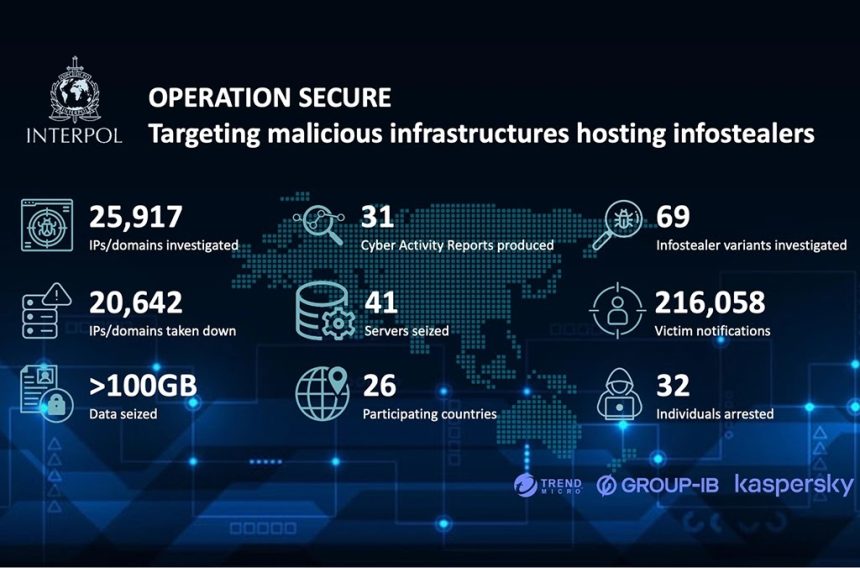From January to April 2025, the Maldives Police Service’s Cyber Crime Centre played a pivotal role in Operation Secure, a major INTERPOL-coordinated cybercrime offensive under the Asia and South Pacific Joint Operations Against Cybercrime (ASPJOC).
In this four-month operation, law enforcement agencies across 26 countries joined forces to dismantle more than 20,000 malicious IP addresses and domains tied to “infostealer” malware—software designed to hijack sensitive data such as passwords, credit card information, browser credentials, and cryptocurrency wallet keys, often paving the way for ransomware, fraud, and other severe cybercrimes . INTERPOL launched Operation Secure to boost cyber incident response across the region, reinforcing its critical role in disrupting transnational cyber threats.
Strategic Collaboration and Local Impact
In Malé, the Maldives Cyber Crime Centre conducted targeted investigations into digital indicators unique to the nation’s landscape, partnering with international police and the private sector. Global firms including Group-IB, Kaspersky, and Trend Micro supported intelligence gathering and analysis. Cooperation with local internet service providers enabled the identification of compromised systems, contributing essential telemetry to global takedown efforts.
“This operation reflects our unwavering commitment to combating cybercrime both within the Maldives and worldwide,” affirmed the Centre’s director, highlighting the necessity of cross-border partnerships in countering technology-enabled threats.
Major Takedowns, Stark Results
Officials report that Operation Secure led to the seizure of 41 servers and over 100 gigabytes of stolen data. Thirty-two suspects have been arrested in connection with the campaign. Investigators identified over 216,000 individuals and organisations as actual or potential victims; most have since been contacted and guided on protective measures such as resetting credentials and securing accounts.
These measures represent a formidable blow to cybercriminal infrastructure and signify one of the region’s most aggressive efforts against infostealer malware to date.
Sustainable Defences and Future Directions
As the Maldives implements its Cyber Security Act—including the establishment of a National SOC and CSIRT under its new National Cyber Security Agency—officials maintain that operational readiness must be matched with international collaboration.
Reiterating this, the Centre’s director noted, “The digital world is increasingly interconnected, and so must be our response to the threats it faces.”
Why Operation Secure Matters
Global impact, local expertise: By combining intelligence from global partners with locally sourced indicators, Maldives bolstered efforts to trace and disrupt malware infrastructure.
Public-private synergy: Working with cybersecurity firms accelerated detection and identification of malicious networks.
Victim-centric outreach: Contacting and advising hundreds of thousands of people reflects a comprehensive response strategy—takedown and recovery.
As cybercrime continues to evolve into a sophisticated underground economy exploiting human and technological vulnerabilities, “Operation Secure” demonstrates the imperative of integrated, cross-sector and cross-border action. For the Maldives, it underscores a clear path forward: continuously improve technical capabilities, empower international partnerships, and protect citizens in an increasingly digital world.




